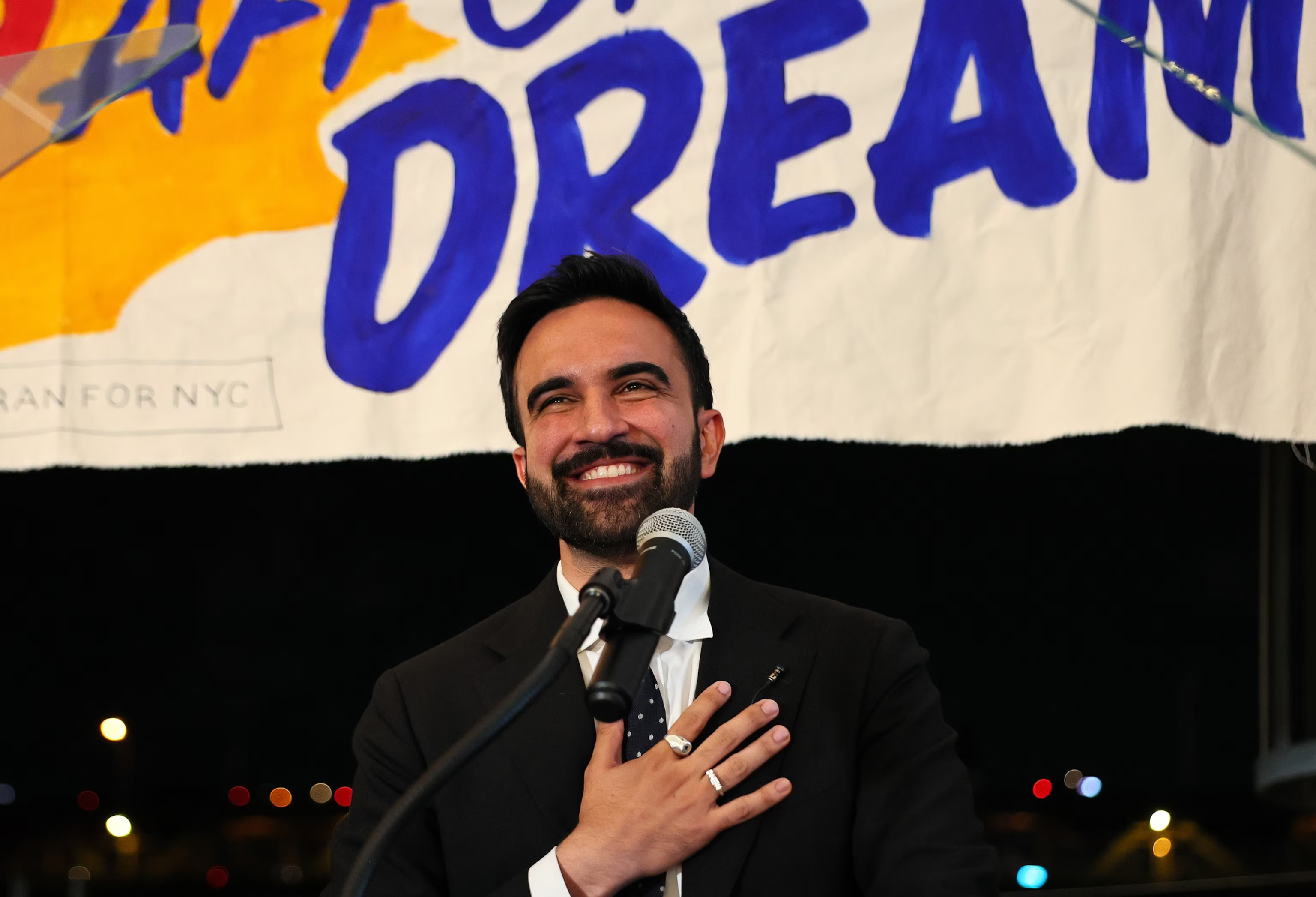Zohran Mamdani being the Next Mayor of the World’s Capital?
Zohran Mamdani being the Next Mayor of the World’s Capital?
ET1

As a proverb goes, “Spring doesn’t ask winter for permission to arrive.” The mayoral election of NYC usually isn’t a vogue topic in global politics. But this time, it feels prodigious. From the USA to India, a new face is bringing hope to many or serving as a harbinger of disruption to others. Zohran Mamdani, born in Uganda with an Indian family heritage, has become a new sensation in world politics. While the President of the USA has started to taunt him by branding him a “communist lunatic,” a huge portion of NYC considers Mamdani their panacea. With such a formidable opponent, can he truly advance, or is it just ephemeral hype?
June 24th was a pivotal day for Mamdani. He became the first Democratic nominee for NYC mayor, defeating former Governor Andrew Cuomo by almost 12% under the Ranked-Choice Voting (RCV) system. At the beginning of the year, he had a meager 1% popularity. So what happened over this short time that made him the favorite?
We now live in a digitally saturated milieu. Conventional campaigning is becoming obsolete and ineffectual. This shift benefited Mamdani. His engaging and vibrant personality made him a star in the online world. With only an $8 million campaign budget, Mamdani beat Cuomo, who had $24 million. This created a stunning upset in New York politics. Zohran amassed most of his funds from public contributions. His bold, some would say whimsical, proposals for NYC’s working-class population gained both adulation and umbrage. He has become a symbol of progressive ideals. But the opposition did not remain dormant. Critics paint Mamdani as inexperienced, perfidious, even anti-Semitic. Partial media outlets have amplified these accusations.
It’s mostly older people who go out to vote, often reinforcing leaders with outdated mindsets and corrupt systems. Mamdani disrupted this status quo. He galvanized younger voters, whose turnout proved pivotal. NYC is a city of immigrants, with 60% of its residents foreign-born. Mamdani canvassed among Hispanic, Bengali, Muslim, and Indian communities, engaging in conjugal connections with the people and going door to door. Around 60,000 volunteers rallied behind him, forming a veritable grassroots force. Progressives support Zohran. His outspoken criticism of Netanyahu’s regime has resonated with many Muslims. People from other ethnic groups really connect with his background. The queer community also supports him for being vocally on their side.
Among his key proposals are:
1. Free public transportation
2. Free healthcare
3. Rent freeze
4. City-run grocery stores
5. Diversifying the NYPD
He claims these initiatives will be funded by taxing billionaires. His message, “Billionaires already have everything. Now, your time has come,” attracted many. Why wouldn’t it? The cost of rent is outrageously unaffordable now. The majority of New Yorkers are working not to afford luxuries, but merely to survive. Mamdani pledges not to foist hardship on the poor but to alleviate their plight by promoting equitable reform. But his road is fraught with vicissitudes. Critics argue that his policies are chimerical, more theoretical than feasible. They also warn that his leadership might cause billionaires and corporations to decamp, leading to economic attrition. In a country steeped in capitalism, the idea of a democratic socialist running its biggest city feels radical, especially to those who still confuse socialism with extremism.
The Jewish community plays a paramount role in NYC politics, and their dissent could be consequential. Accusations of anti-Semitism, largely stemming from Mamdani’s critique of Israeli policy, are already gaining traction. Despite his efforts to rebut these claims and clarify his stance, skepticism remains. Mayor Eric Adams, staunchly pro-Israel, dismisses Mamdani’s agenda as untenable.
Mamdani has also drawn fire from Donald Trump, who labeled him his “worst nightmare.” The combined force of Republicans and conservative Democrats poses a formidable challenge. Mamdani and his supporters appear undaunted. Notably, he has been endorsed by Bernie Sanders, a Jewish senator. This endorsement helps debunk the calumny of religious animosity.
The January 2026 election looms. If Mamdani continues his zealous campaign, grounds it in viable strategies, and maintains strong connections with NYC’s diverse and youthful electorate, he may remain the front-runner. Cuomo and Adams, both Democrats, will split votes, and a Republican candidate will also run. Given that New York is a Democrat-dominated city, the real battle may occur within the left. If conservative voters and certain Jewish blocs coalesce against Mamdani, the race could become tight. Perhaps it is prudent for him to temper his rhetoric against billionaires and avoid being labeled a 'communist'. However, if he can convince voters of his intentions and articulate a lucid, pragmatic roadmap, he might become the next great political icon, redefining the American narrative.
He must do all this while remaining steadfast in his advocacy for justice, especially in confronting the oppression of Gazans by the Israeli state.